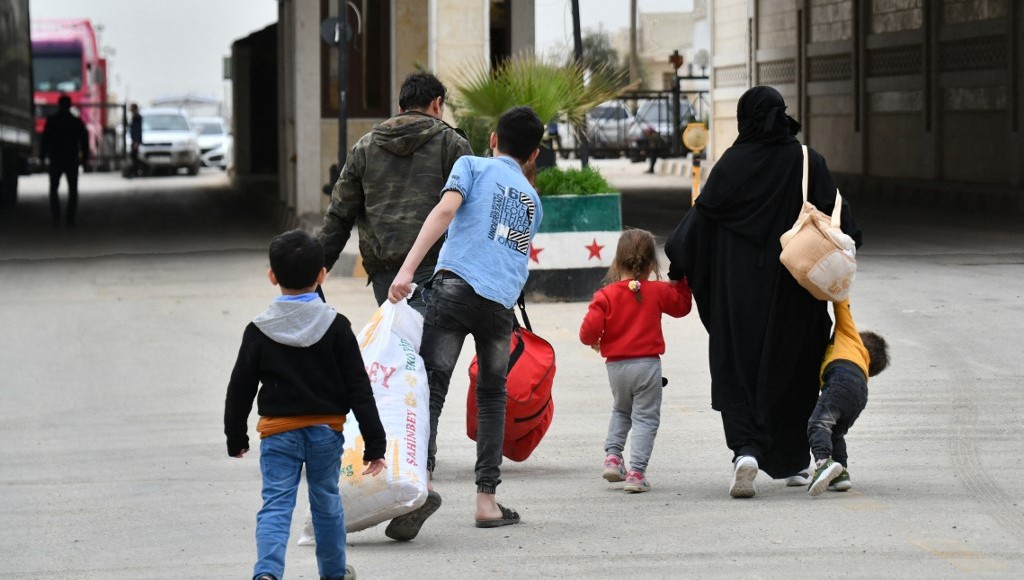Turkish authorities arbitrarily arrested, detained and deported hundreds of Syrian refugee men and boys to Syria between February and July 2022, Human Rights Watch (HRW) said in a new report.
There are more than 3.5 million Syrian refugees officially living in Turkey. Less than nine months from elections, their presence in the country has become a thorny political issue, especially as Turkey battles an economic crisis. President Recep Tayyip Erdoğan, who has in recent months said he is preparing to repatriate a million Syrian refugees on a voluntary basis, announced earlier this month that more than half a million Syrians who had fled their war-torn country for neighboring Turkey have returned home since 2016.
However, HRW says the Syrian refugees who are presented as having returned to Syria voluntarily were actually deported by Turkey.
Deported Syrians told HRW that Turkish officials arrested them in their homes, workplaces and on the street, held them in poor conditions, beat and abused most of them, forced them to sign voluntary return forms, drove them to border crossing points and forced them across at gunpoint.
“In violation of international law Turkish authorities have rounded up hundreds of Syrian refugees, even unaccompanied children, and forced them back to northern Syria,” said Nadia Hardman, refugee and migrant rights researcher at HRW. “Although Turkey provided temporary protection to 3.6 million Syrian refugees, it now looks like Turkey is trying to make northern Syria a refugee dumping ground.”
Recent signs from Turkey and other governments indicate that they are considering normalizing relations with Syrian President Bashar al-Assad. In May 2022 President Erdoğan announced that he intends to resettle 1 million refugees in northern Syria, in areas not controlled by the government, even though Syria remains unsafe for returning refugees. Many of those returned are from government-controlled areas, but even if they could reach them, the Syrian government is the same one that produced over 6 million refugees and committed serious human rights violations against its own citizens even before the uprisings began, according to HRW.
The prominent rights group said deportations provide a stark counterpoint to Turkey’s record of generosity as host to more refugees than any other country in the world and almost four times as many as the whole European Union, for which the EU has provided billions of euros in funding for humanitarian support and migration management.
Between February and August, HRW interviewed by phone or in person inside Turkey 37 Syrian men and two Syrian boys who had been registered for temporary protection in Turkey. HRW also interviewed seven relatives of Syrian refugee men and a refugee woman whom Turkish authorities deported to northern Syria during this time.
HRW also sent letters with queries and findings to the European Commission, the European Commission’s Directorate-General for Migration and Home Affairs and the Turkish Interior Ministry.
Turkish officials deported 37 of the people interviewed to northern Syria. All said they were deported together with dozens or even hundreds of others. All said they were forced to sign forms either at removal centers or at the border with Syria. They said the officials did not allow them to read the forms and did not explain what the forms said, but all said they understood the forms to be allegedly agreeing to voluntary repatriation. Some said officials covered the part of the form written in Arabic with their hands. Most said they saw authorities at these removal centers processing other Syrians the same way.
Many said that they saw Turkish officials beat other men who had initially refused to sign, so they felt they had no choice. Two men detained at a removal center in Adana said they were given the choice of signing a form and going back to Syria or being detained for a year. Both chose to leave because they could not bear the thought of a year in detention and needed to support their families.
Ten people were not deported. Some were released and warned that if they did not move back to their city of registration they would be deported if found elsewhere. Others managed to contact lawyers through the intervention of family members to help secure their release. Several are still in removal centers waiting for a resolution to their case, unaware of why they’re being detained and fearing deportation. Those released described life in Turkey as dangerous, saying they are staying at home with their curtains closed and limiting movement to avoid the Turkish authorities.
HRW said Turkey is bound by treaty and customary international law to respect the principle of nonrefoulement, which prohibits the return of anyone to a place where they would face a real risk of persecution, torture or other ill-treatment, or a threat to life.
“Turkey must not coerce people into returning to places where they face serious harm. Turkey should protect the basic rights of all Syrians, regardless of where they are registered and should not deport refugees who are living and working in a city other than where their temporary protection ID and address are registered,” said HRW.


